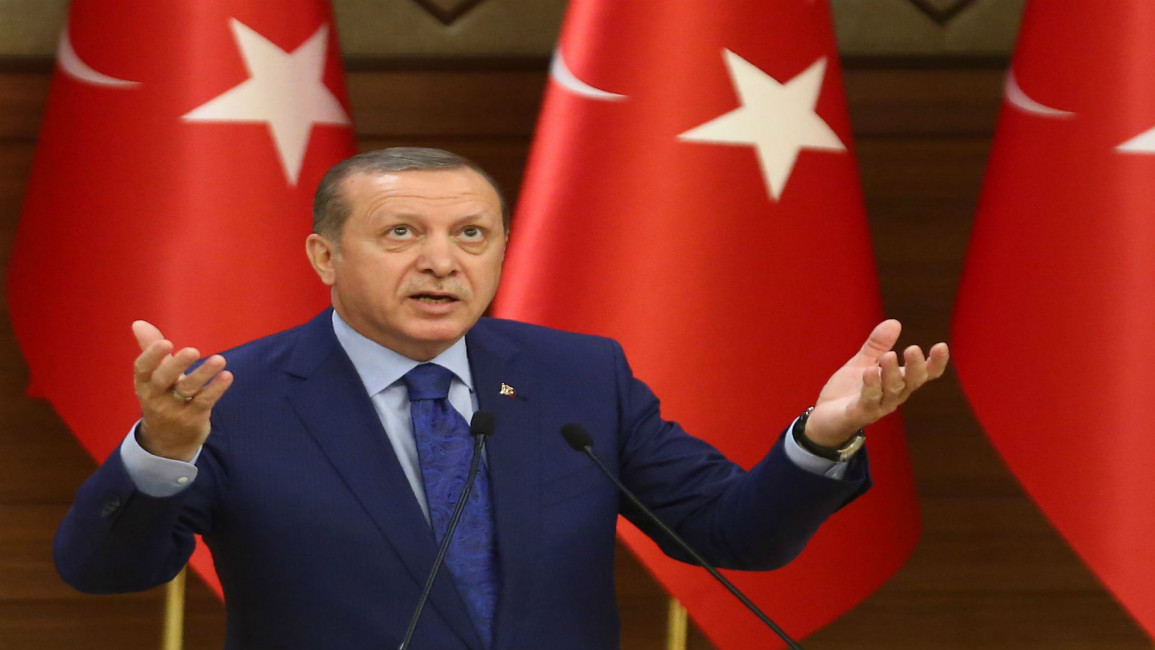First Israel-Turkey meeting paves path to reconciliation
"Meetings with Israel have been taking place for a while and they are continuing today," Davutoglu said in Ankara.
"If our demands are received favourably, then the next steps will be clear and the necessary announcements will be made to the public."
Negotiations in the Vienna meeting involved the ongoing Israeli-Palestinian conflict, which is expected to be further discussed when a delegation visits the occupied territories to meet with Israeli and Palestinian officials on Saturday.
Analysts suggested Turkey's eagerness to reconcile with Israel relates to its deteriorating ties with Moscow - an inconvenience to Turkey that relies on Russia for more than half of its natural gas imports.
But Turkey now appears to have its sights locked on Israel which is expected to deliver its first gas delivery to Istanbul in the next five years, Batu Aksoy, the CEO of Turkish energy firm Turcas Petrol, told local media. At least 15 energy companies want to be part of a planned consortium to carry Israel gas to Europe, he told investors.
And recent diplomatic manoeuvres suggest the two states are on the road to reconciliation.
Turkey's President Recep Tayyip Erdogan met with representatives of Jewish organisations in the US last week where he discussed the fight against terrorism.
Israeli President Reuven Rivlin, meanwhile, called Erdogan to thank him for his compassion towards three Israelis who were killed in a suicide bombing in Istanbul last month.
Developments in the five-year feud were first reported in February when a Turkish newspaper suggested talks of reconciliation between the two states were discussed in a cabinet meeting attended by President Erdogan.
Relations between the two states were severed in 2010 when a Turkish flotilla delivering aid to Gaza was attacked in international waters by Israeli forces, killing nine Turkish activists.
The deadly raid on the on Mavi Marmara, one of six ships sailing to the besieged territory, was carrying 10,000 tonnes of aid, including medical and school supplies, building materials and generators.
Turkey withdrew its ambassador to Israel and expelled Israeli diplomats from its capital.
An international outcry ensued, with a UN statement calling for a "prompt, impartial, credible and transparent" inquiry.
The Israelis used unnecessary and "disproportionate" force and were accused of breaking international law, according to a UN Human Rights Council report.
A US-brokered mediation in 2003 attempted to end the hostility between the two countries, though not much progress was made.
A statement from Netanyahu's office said the prime minister "made it clear that the tragic results regarding the Mavi Marmara were unintentional and that Israel expresses regret over injuries and loss of life".
"In light of the Israeli investigation into the incident, which pointed out several operational errors, Prime Minister Netanyahu apologised to the Turkish people for any errors that could have led to loss of life and agreed to complete the agreement on compensation," it added.
Similarly, Erdogan's office responded saying the leaders had "agreed on making arrangements for compensation" to the victims' families, adding: "Our prime minister accepted the apology in the name of the Turkish people."



